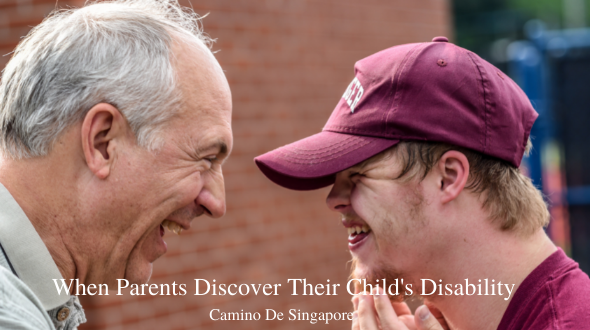No products in the cart.

A newly minted mother lay on the hospital bed exhausted, having depleted her energy to deliver her child. She was tremendously relieved and happy. There were no delivery complications. Now, all she longed for was to see her newborn.
After what seemed like ages, her doctor came to her bedside. “I’m so sorry,” he said, sounding deeply apologetic. “Your daughter has a forearm stump.” The mother did not understand.
It was only when she saw her newborn in the arms of the nurse that she finally registered the doctor’s words. Immediately, her relief and joy disappeared. Her baby had a stump at where her lower arm should be.
It cannot be. What did I do wrong? What am I going to do? How is she going to live?
And the mother broke down.
Have you encountered such stories before? If you have a family member, friend, or colleague who was born with a disability, this might sound familiar.
The birth of a child is a cause for celebration. But for some parents, that joy is tempered by the discovery of their child’s disability. They might experience emotions like denial, guilt, fear, and grief. And those feelings rarely dissipate completely, coming and going in waves of different intensity throughout their child’s life. For one mother, her safety fears arose when her 30-year-old son with autism became overstimulated by loud noises and turned violent. For another, she worried over the long-term care of her 22-year-old son with autism. Who will take care of him after she passes away?
To be sure, there is a plethora of schemes and services for caregivers and their charges with disability, ranging from financial support to special education schools. But availability does not always mean accessibility. The estimated waiting time for an early intervention programme, for example, could be up to two years. Then, there is also the matter of care navigation. Some struggle to find sources of help.
Furthermore, the above-mentioned are just formal support systems. What about the others in their ecosystem? Are employers accommodating to parents’ request for flexible work arrangements so they can fulfil their work and caregiving commitments? Are members of the public understanding when a child with autism has a meltdown due to sensory sensitivity?
At the end of the day, it takes an entire society’s involvement for persons with disabilities to live with dignity and fulfilment. So if you are ever placed in a situation involving a person with disability or if you are simply in the company of a caregiver or their charge, please be kind. Be empathetic. Be Christ-like to them. Your compassionate presence could help lift their spirits, even if it is just for mere seconds, in a lifetime of braving stares, enduring judgements, and overcoming barriers.
—
SG Enable is the first-stop resource portal for persons with disabilities and their caregivers, as well as disability professionals looking for information on disability support. For more information, visit their website at https://www.sgenable.sg/ or call 1800-8585-885.
Jorain Ng is a daughter, sister, and a Social Worker at Caritas Singapore. She has a habit of randomly sharing her reflections and takeaways from books and articles with her family and friends.
